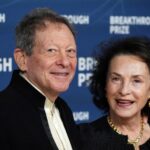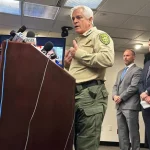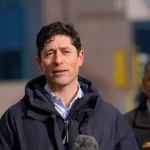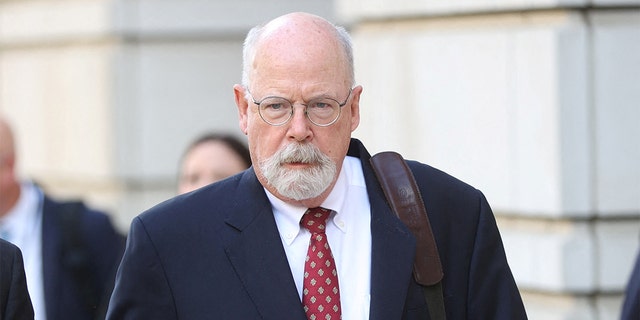
NEWYou can now listen to Fox News articles!
WASHINGTON, D.C. – Special Counsel John Durham’s team delivered its closing argument in the trial of Michael Sussmann Friday morning, saying the evidence has “proven beyond a reasonable doubt” that Sussmann made a false statement to the FBI. Sussman had said he was not bringing the debunked allegations of a covert communications channel between the Trump Organization and a Russian bank to the bureau on behalf of any client, when he, in fact, billed Hillary Clinton’s presidential campaign for his time and work on the matter.
Federal prosecutor Jonathan Algor delivered the government’s closing argument Friday morning, presenting their final case to the jury.
SPECIAL COUNSEL JOHN DURHAM’S PROSECUTION OF MICHAEL SUSSMANN: EVERYTHING YOU NEED TO KNOW
Sussmann has been charged with one count of making a false statement to the FBI when he met with then-FBI General Counsel James Baker on Sept. 19, 2016. The government alleges Sussmann told Baker that he was not bringing allegations tying then-candidate Donald Trump to the Kremlin-linked Alfa Bank on behalf of any client, but rather, as a citizen concerned with national security.
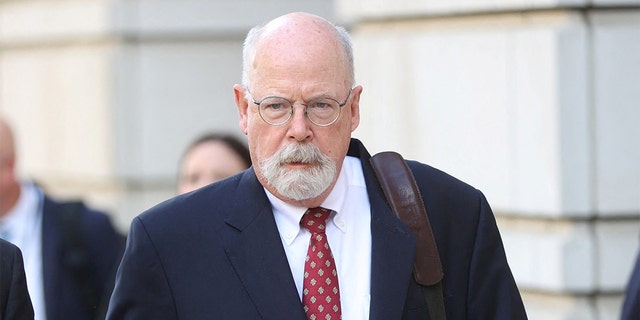
Special Counsel John Durham departs the U.S. federal courthouse after opening arguments in the trial of attorney Michael Sussmann in Washington, May 17, 2022. (Reuters/Julia Nikhinson)
Sussmann has pleaded not guilty to the charge.
But the government argued that billing records, testimony and other written evidence prove that Sussmann was charging the Clinton campaign for his work on the matter, and has said throughout the trial that he billed the Clinton campaign for the FBI meeting.
“The evidence has proven beyond a reasonable doubt that the defendant Michael Sussmann made a false statement to the FBI,” Algor said. “The defendant used his privilege as a high-powered Washington lawyer, a former DOJ prosecutor… to bypass normal channels and expedite a meeting with the FBI general counsel.”
“He knew he had to conceal his connection to the Clinton campaign and to Rodney Joffe,” Algor said. “He knew if he told Baker he was there on behalf of the Clinton campaign, the chances of an FBI investigation would be diminished.”
Algor went on to stress that the allegations were “not about national security” but “about opposition research against candidate Donald Trump.”
Algor laid out the false statement charge, alleging that Sussmann’s statement to Baker during the meeting was the false statement, saying the evidence shows the statement was “untrue when it was made and he knew it was untrue.”
Algor referenced the “materiality” of the false statement, saying that jurors are required to decide on whether Sussmann’s false statement was capable of influencing the FBI.
“The government is not required to prove that the statement influenced the FBI but only that it could have influenced the FBI,” Algor told jurors.
“How do we know it mattered?” Algor asked. “Baker said he doesn’t know if he would have taken the meeting had he known [Sussmann was representing the Clinton campaign].”
Algor pointed to Baker’s testimony, in which he said he would have paused the investigation, consulted with FBI leadership, and would have invited others to participate in the meeting with Sussmann on Sept. 19, 2016, due to the fact that it took place “a month and a half before the presidential election.”
Algor reminded the jury that a government witness, former FBI agent Allison Sands, also raised concerns, saying she would have wanted to know about “motivations.”
Algor presented a number of billing records and emails to the jury Friday, beginning on July 29, 2016, and through October 2016, revealing Sussmann repeatedly billed the Clinton campaign for work on the Alfa Bank opposition research against Trump.
The government also reminded jurors of a key text message Sussmann sent to Baker on the night before his FBI meeting on Sept. 19, 2016. Durham’s team alleges Sussmann put his “lie in writing” in his Sept. 18, 2016, text to Baker.
The text message stated: “Jim — it’s Michael Sussmann. I have something time-sensitive (and sensitive) I need to discuss,” the text message stated, according to Durham. “Do you have availability for a short meeting tomorrow? I’m coming on my own — not on behalf of a client or company — want to help the Bureau. Thanks.”
Baker replied, “OK. I will find a time. What might work for you?”
Algor, on Friday, said that text message had “43 words” and said “20” of those words were “a lie.”
“The defendant’s own words, own actions, are overwhelming,” Algor said. “The evidence has proven beyond a reasonable doubt that Sussmann made a false statement to the FBI.”
“You should return the only verdict supported by the evidence in this case – guilty,” Algor closed.
Sussmann decided not to testify in his defense, and his defense began delivering its closing argument Friday morning.





